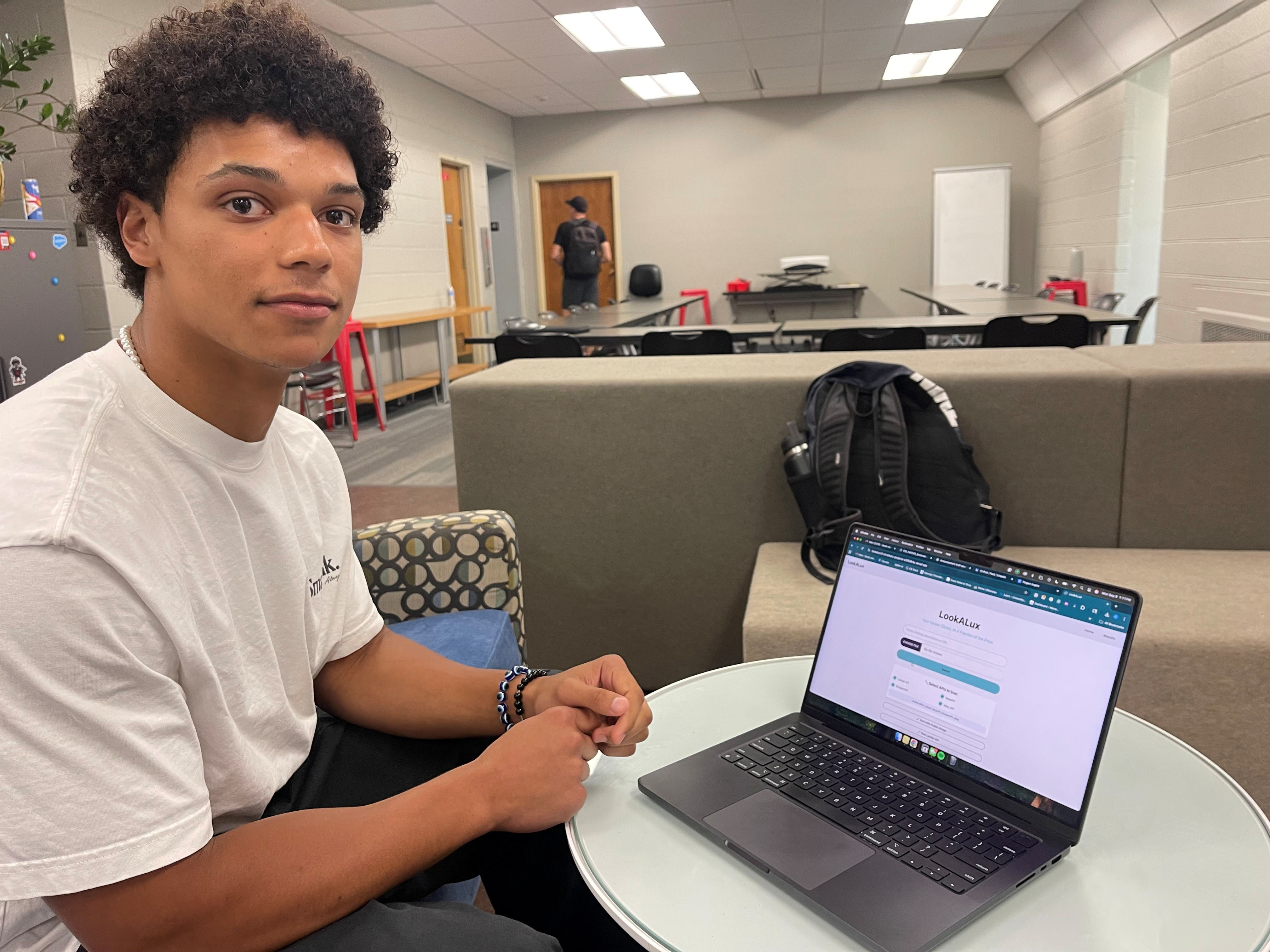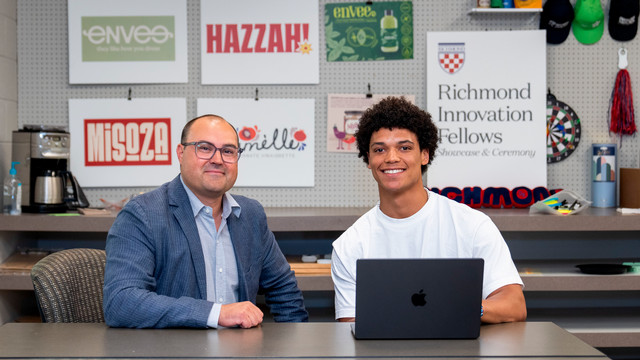Students become entrepreneurs through Richmond incubator
Student Experience
Sophomore Deven Vennera, who plans to major in economics and finance, dreams of launching a website that helps customers easily find clothing and accessories with a high-end feel at affordable prices. He had only started developing his idea at the beginning of the Richmond Summer Incubator program. By late July, Vennera brought on a technical cofounder to assist with building and maintaining the site.
Offered through the Innovation Studio, the program encourages students to flesh out their ambitious ideas through interviews with potential customers and perform other real-world checks. “The virtual six-week program is held at an intensive, graduate-level pace that offers a deep dive into what it takes to have a lean startup and customer discovery best practices,” said Andrew Ilnicki, director of the Innovation Studio.
The 240-hour class is open to all majors, and students can continue to receive guidance through the Innovation Studio even after they’ve completed the program. Participants apply through the University of Richmond Summer Fellowship program in the spring semester. The students accepted each year receive a $3,000 stipend to work on their ideas.

The course centers on Lean Launchpad, a methodology focused on helping potential entrepreneurs test their ideas early in the process of creating a business.
A burgeoning idea
A growing interest in fashion led Vennera to visualize LookALux. He does not intend for it to be a shopping site. Consumers will have access to buy directly from product pages based on their preferences. He’s considering potential monetization methods that might include affiliate programs or advertising. The plan is to have the website in the beta stage by the end of September.
“The most valuable part of the incubator program was the tight deadlines, forcing me to be proactive and move with a purpose, whether that be cold outreach for customer interviews, finding prototype testers, or asking for help or mentorship,” he said.
Other Summer Incubator program participants included juniors Bongani Mwonzora, an economics major, and Gleb Patyrin, a double major in business and math economics, and sophomores Aaron Greenwood and Baltasar Urrutia, who have not yet declared their major.
The customer is always right
Students deliver three presentations during the program: a preliminary business thesis, a preliminary business model canvas, and a final presentation on lessons learned. A significant part of the Summer Incubator is dedicated to customer discovery. Students are required to conduct 40 interviews with potential customers of their product, in person or by phone. Many students found this part of the assignment challenging, but Ilnicki stressed its importance.
“You craft a hypothesis about your product, your service, your business, and the problem that you're solving. And through interviews and mining for insights, you look to prove or disprove that hypothesis while de-risking your investment of resources,” Ilnicki said.
Customer feedback led Vennera to identify more brands that fit his quality and cost parameters.
According to Ilnicki, some students had to rethink their approach after the interviews. Junior Gleb Patyrin, whose product focused on improving math battle skills learned that coaches, not students or parents, were his target market.
“If he's going to design a new solution to allow people to better compete and work on their math skills, the coach is actually the most important person to begin with, and he didn't realize that until he was halfway through the six weeks,” Ilnicki said.
Such changes of direction are expected and welcomed in the program. The students are also part of the Richmond Innovation Fellows and will continue pursuing their business in a capstone course this fall.
“Talking through with your potential customers, is not whether or not they like the idea or solution, but really trying to understand the user’s problem space,” Ilnicki said. “It's a different approach to creating a new venture.”
Vennera agreed. “The most valuable lesson I learned from customer discovery was that it's okay to be wrong and to become obsessed with solving a problem, rather than falling in love with your solution,” he said. “It's better to change direction before you invest time, money, and effort into a project, as it can only benefit you in the long run.”

